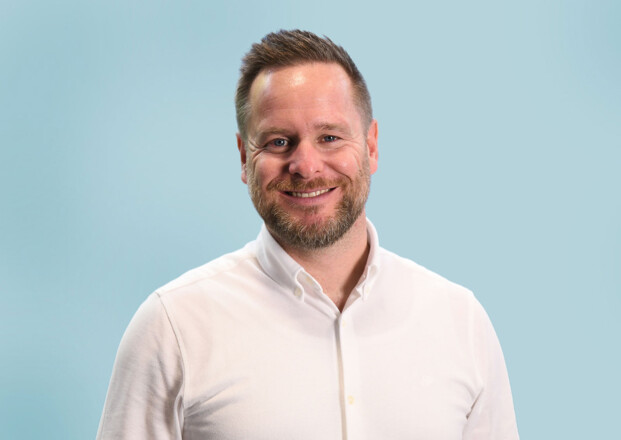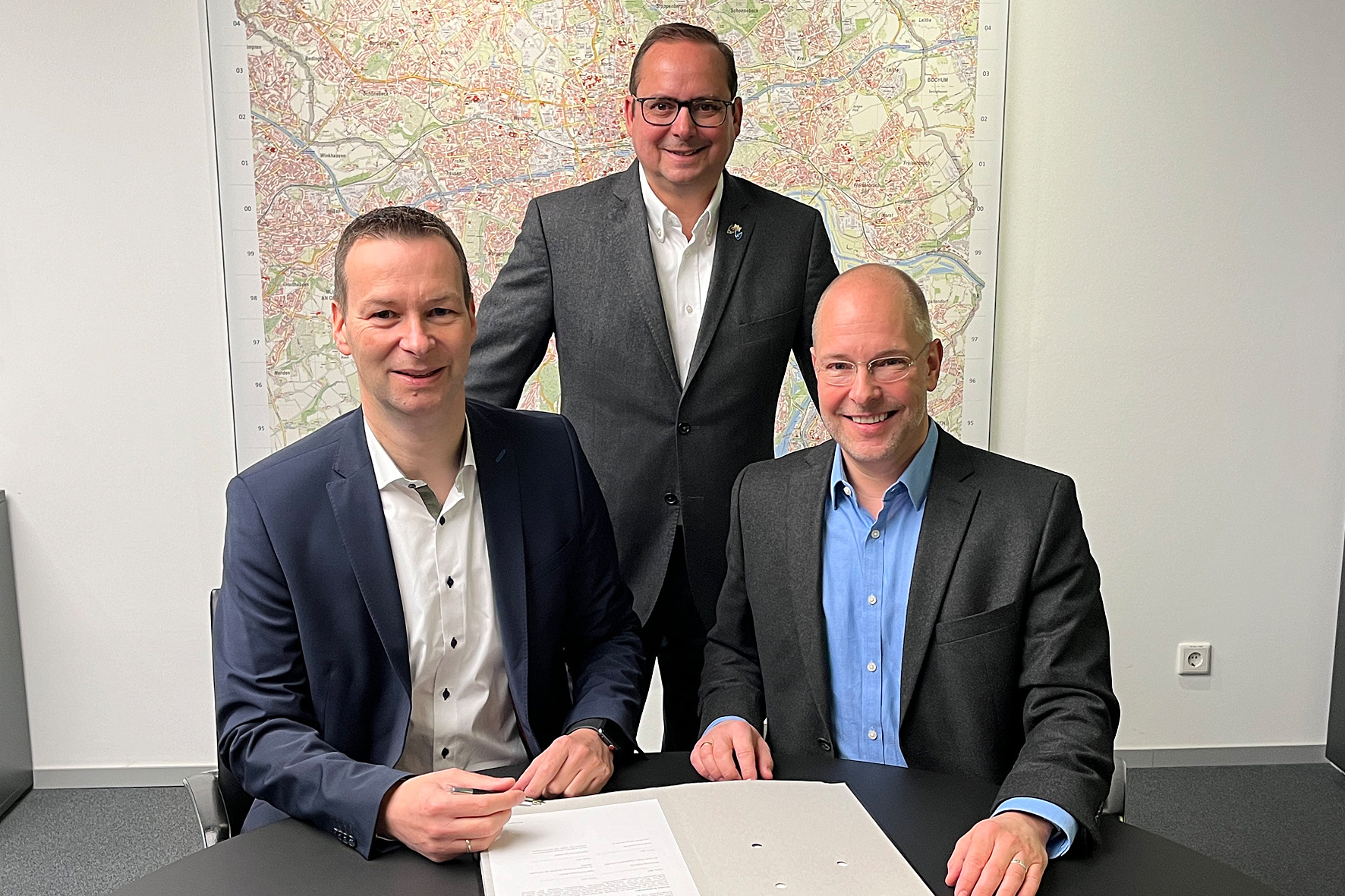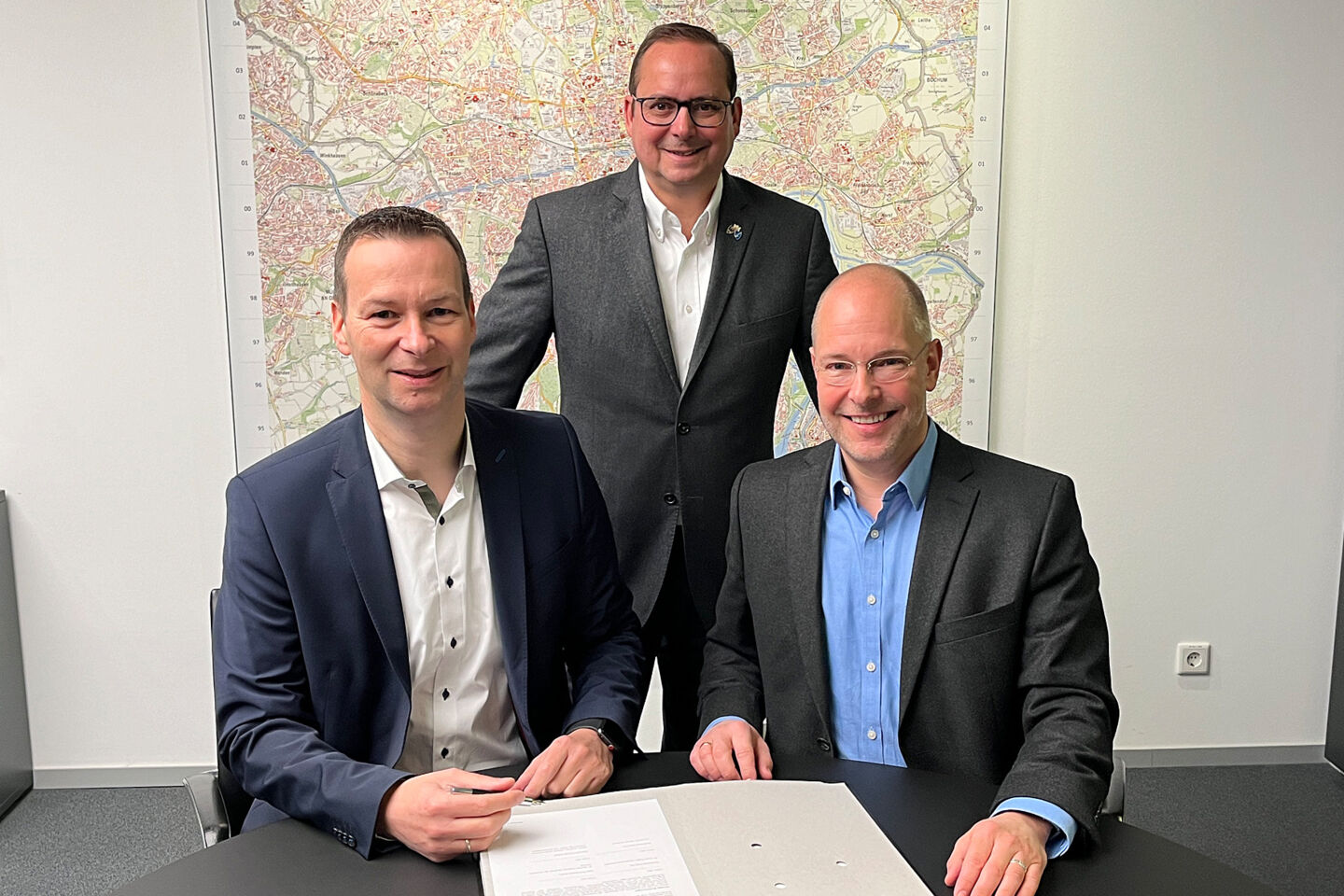The gas transmission system operator OGE and the municipal utility Stadtwerke Essen are working together on the future of hydrogen transportation to and within Essen. The partnership agreement signed by both companies will enable Stadtwerke Essen and OGE to explore how hydrogen can be transported through the nationwide core network to businesses and consumers in Essen.
OGE designs and builds pipeline systems and operates a network totalling 12,000 kilometres in Germany, with which it connects major customers. Local utilities like Stadtwerke Essen distribute the natural gas – and in future hydrogen – via their local grids to end users.
The partnership will examine future capacity requirements as well as network connection and transformation plans. That also means answering specific questions, like when and how the hydrogen will flow through which parts of the Stadtwerke Essen distribution grid.
“The partnership between two strong Essen-based organisations highlights the seriousness with which we are driving forward the decarbonisation and transformation of energy supply in the Rhine/Ruhr region. Since this industrial region is crucial to Germany as a whole, supplying Essen with hydrogen for business and end users alike is hugely important,” said Dr Thomas Hüwener, CEO of OGE.
Dr Frank Pieper, CEO of SWE, added: “We are a local supplier, so for us it is strategically important to act early in tackling innovative solutions for the sustainable energy supply of tomorrow. We have therefore decided to also utilise the potential of hydrogen for Essen. This requires strong partnerships – and we’re working to build them, as now with OGE.”
The Mayor of Essen Thomas Kufen was also full of praise for the partnership: “As Europe’s energy capital, Essen has a pioneering role to play in the area of hydrogen, too. We see H2 not only as a key technology for actively shaping the energy transition and developing sustainable solutions for the future, but also as a concrete way to strengthen our local economy through the provision of hydrogen as an energy source. I am therefore delighted that two key Essen players in the field of energy are working together to secure the supply.”
Background: At the end of October, the Federal Network Agency approved the construction of a nationwide hydrogen core network in Germany. By 2032, the country will thus have Europe’s largest hydrogen network with a total length of 9,040 kilometres, part of which is being built by OGE. The core network will mainly consist of repurposed natural gas pipelines (approx. 60%). Investment costs for the project amount to around 19 billion euros, and the core network will cross the city of Essen.



